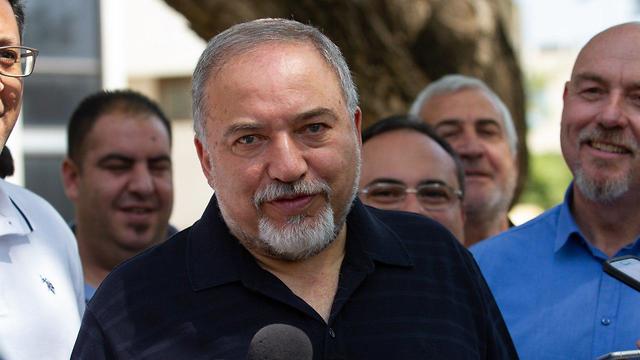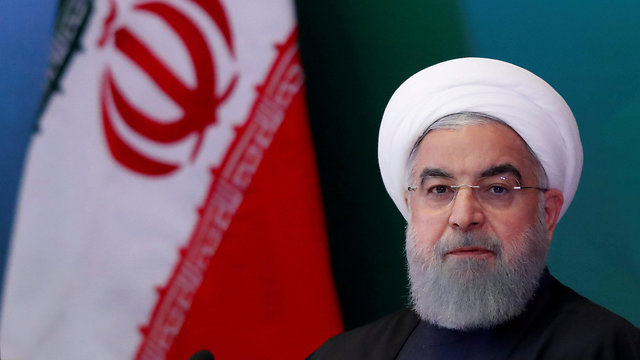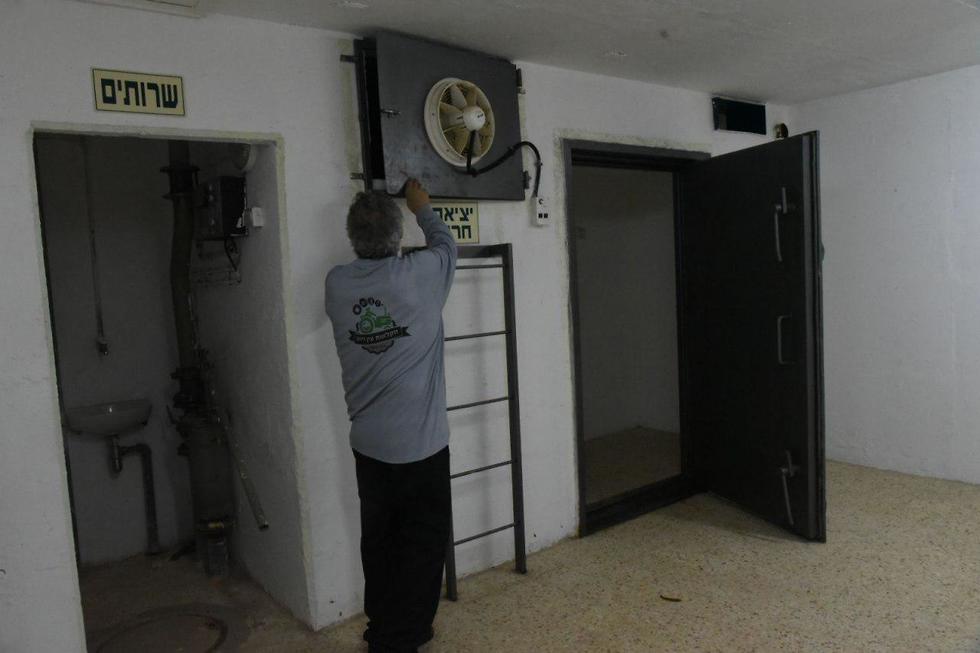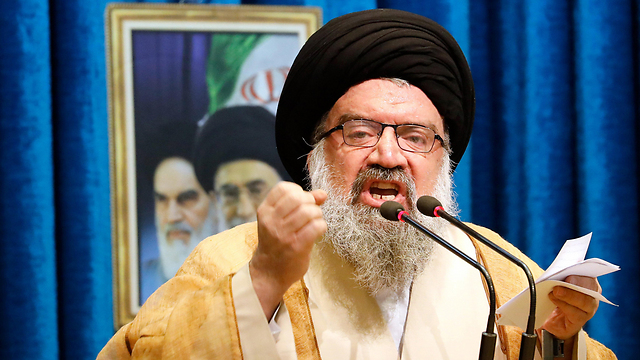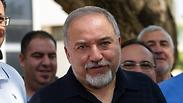

Lieberman calls on Assad to 'get rid' of Iranian forces in Syria
Defense minister says Israel doesn't seek friction, noting 'We did not come to the Iranian border, they came here,' and telling the Syrian president that the Iranians 'are not helping you, and their presence will only cause problems and damages.'
Speaking while touring the Israeli side of the Golan Heights in the wake of Iranian rocket fire on northern Israel, to which the IAF retaliated with attacks on Iranian targets in Syria, Lieberman said Israel is not looking for friction.
"We did not come to the Iranian border, they came here," he said.
Iran has advisers and experts and has backed tens of thousands of militiamen who are fighting alongside Assad forces in the civil war. Israel has warned it will not tolerate its archenemy Iran establishing a military presence on its doorstep.
"I will take this opportunity to send a message to Assad: Get rid of the Iranians, get rid of Qasem Soleimani, and the Quds Force, they are not helping you, they only cause damage, and their presence will only cause problems and damages," Lieberman said.
Soleimani is the head of the Iranian Revolutionary Guard's elite Quds expeditionary force which is fighting in both Iraq and Syria.
"Get rid of the Iranians and maybe it will be possible to have a different kind of life," Lieberman added.
Israel attacked dozens of Iranian targets in Syria in overnight strikes in response to an Iranian rocket barrage. It was the most serious military confrontation between the two bitter enemies to date. The cross-border exchange gave way to a war of words.
Iran's President Hassan Rouhani told German Chancellor Angela Merkel in a telephone call that he did not want "new tensions" in the Middle East.
Rouhani did not mention Israel's strikes in Syria, or those against the Golan Heights.
Nevertheless, Lieberman noted that "The Iranian president's message is an important one. I hope it's a real one too."
The defense minister, meanwhile, said that he didn't think exchange of blows between Israel and Iran was over. "We remain vigilant and using discretion. We're constantly on alert and monitoring events," he said.
UN Secretary-General Antonio Guterres called late Thursday for an immediate halt to "all hostile acts" to avoid "a new conflagration" in the Middle East.
Guterres' comments came as a calm night followed intense attacks on parts of Syria by Israel. Israel has called on the UN Security Council and secretary-general to condemn Iran's attack on its positions in the Golan Heights.
The Security Council, deeply divided over Syria, is highly unlikely to issue a statement and as of Friday morning no council member had asked for a meeting.
After instructing Israeli residents in the Golan Heights to open their bomb shelters on Tuesday in light of Iranian intentions to carry out an attack against Israel, the IDF said Friday shelters can now be closed.
Israel and Iran have long fought each other through proxies, and with the new exchange each seemed to be sending a warning that a direct clash between them could swiftly escalate.
The scope of the attacks -- which Israel called its largest in Syria since the 1973 Yom Kippur War -- raised the specter of a full-fledged war between Iran and Israel in Syria, a conflict that could potentially drag the militant Hezbollah and Lebanon into the mix with devastating effects, although both sides appeared to signal they wanted the confrontation to remain contained, at least for now.
The rising tension in Syria came just as the United States decided to withdraw from the 2015 nuclear deal with Iran and impose new sanctions, adding to the pressure on Tehran.
In Tehran, senior cleric Ayatollah Ahmad Khatami said the Western pressure will backfire, threatening that Israel will pay the price.
"The holy system of Islamic Republic will step up its missile capabilities day by day so that Israel, this occupying regime, will become sleepless and the nightmare will constantly haunt it that if it does anything foolish, we will raze Tel Aviv and Haifa to the ground," the hard-line cleric said during Friday sermons. The worshipers chanted: "Death to America," and "Death to Israel."
Thousands later demonstrated across the country.
"Today, we must rely on our own capabilities and if we do so, rest-assured that we will win and the West's domination will not be successful, just like the past 40 years," said Gholamhossein Mohseni Ejei, Iran's judiciary spokesman.
In a first official reaction to the confrontation on Wednesday night, Tehran said Damascus has the legitimate right to respond to what it said were repeated violations of the country's sovereignty "under fabricated and baseless excuses."
Iran's Foreign Ministry spokesman Braham Ghasemi added that the international silence in the face of such "aggressive moves" is in effect a "green light" to more such attacks.
Ghasemi went on to note that the direct attacks on Syria come as the government of Assad is regaining control of territories from rebel fighters, accusing Israel and the United States of supporting the opposition which he called "terrorists."
Yoav Zitun and Ahiya Raved contributed to this story.














